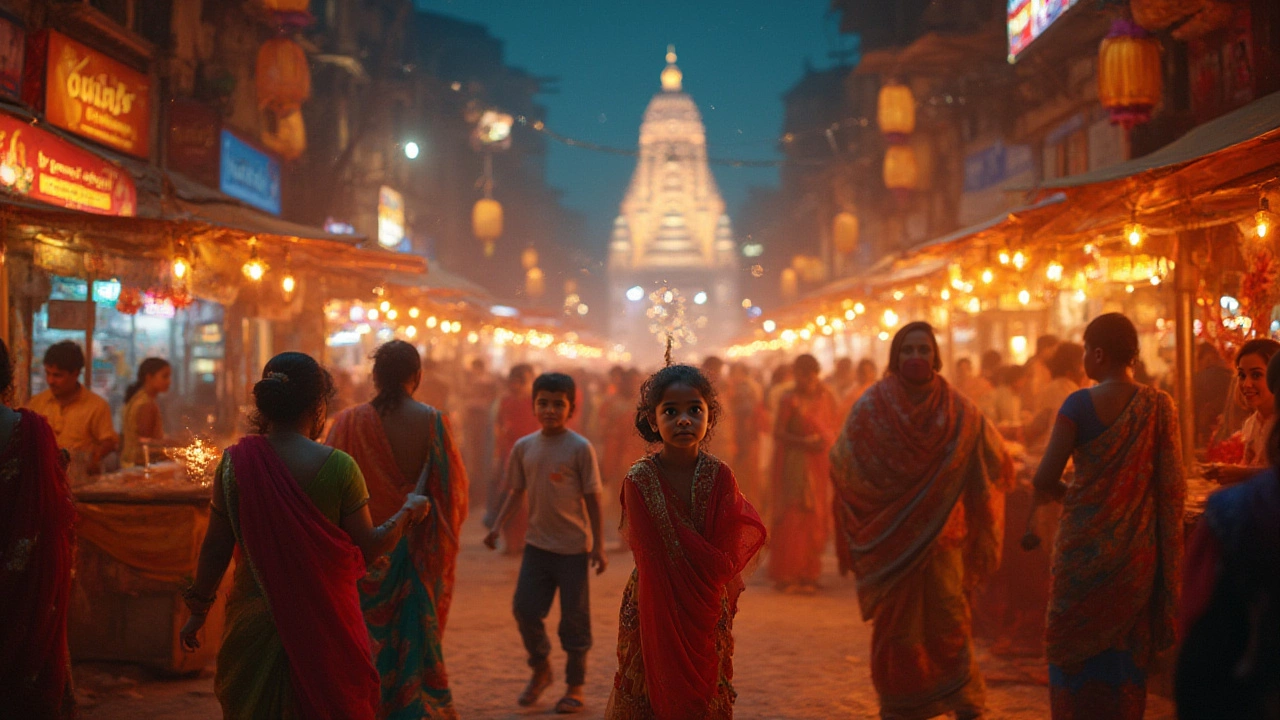
Ask anyone who’s ever spent some time in India—the country seems to always have a festival brewing. Just when you think the music and colors have faded, another round of food, firecrackers, or fasting rolls around. Right now, as folks in India finish clearing out the last remains of the summer fests, everyone’s asking: what’s the next big festival coming up in 2024? If you’re keen on marking your calendar, maybe joining the fun, or just curious about what millions will soon be celebrating, you’re in the right place. Spoiler alert—it’s a festival that brings people of all faiths together, and it’s anything but quiet.
What Is the Next Festival in India in 2024?
Flip open any Indian calendar for July and August, and you’ll find the dates packed, so knowing which event is up next can get tricky. But checking the national holiday calendar, the next major festival on deck for 2024 is Raksha Bandhan, sometimes just called Rakhi. This festival falls on August 19 in 2024, and it’s a day loaded with meaning, food, and that tangled-up feeling of family ties and rivalry—all with a splash of sweet syrupy treats on the side.
Raksha Bandhan isn’t just a Hindu thing, and you’ll spot Jains, Sikhs, and even folks from non-traditional backgrounds celebrating. The core idea? Sisters tie a thread—rakhi—around their brothers’ wrists as a promise of protection and love, and brothers, not to be outdone, promise to look out for their sisters. It sounds simple, but there’s a bunch of ceremony, gift exchanges, jokes, and family drama that makes this day anything but boring. No two families do things exactly alike. Some take a low-key approach, and others turn it into a proper festival with dancing, lunch feasts, and rakhis decked out with cartoon characters or gold. With over a billion rakhis purchased in the few weeks leading up to the date, the tying of the thread is just the beginning—it’s the stories, laughter, and yes, even the little fights that give Raksha Bandhan its staying power.
Mark your calendar for Monday, August 19, 2024. The festivities usually kick off early in the day, but rakhis fly across the globe, so even families separated by continents get in on the action thanks to express couriers and video calls. If you want to join in, expect to see markets bursting way before the date, with vibrant stalls and sweet shops going all-out. Why all the fuss? Well, the rakhi isn’t just a thread—some families use this day as a big get-together after months apart. It’s one of those rare Indian festivals that’s equally loved in tiny towns and mega-cities—no fireworks, but plenty of fireworks between siblings (and a lot of Instagram posts).
Why Raksha Bandhan Is More Than Just Sweets and Sibling Drama
At face value, Raksha Bandhan is about brothers and sisters. But scratch the surface, and you’ll see layers that reveal a lot about Indian family culture, changing social roles, and even politics. For instance, in schools, you’ll spot kids tying rakhis on classmates, regardless of gender or religion. In some government offices and public places, people distribute rakhis to the police or soldiers—it’s transformed into a celebration of social harmony and unity, not just a private family event.
Dive into how this works in bustling urban cities and quiet villages, and you’ll notice something fascinating. In the last decade, with more sisters working in different cities or even abroad, Raksha Bandhan has started looking different. With WhatsApp, FaceTime, and couriered rakhis, siblings celebrate the bond even if they’re thousands of kilometers apart. Digital rakhis, funny memes, and elaborate surprise gifts sent online have jumped into the mix. Remember the Bollywood tradition of the emotional rakhi sequence? Younger generations might give it a modern spin, but the core feeling—the urge to connect, protect, and tease—is still front and center.
The economic side is wild too. Sweet shops often rake in close to 30% more sales just in the week before the festival, with barfis and laddoos flying out of their cabinets. Then you’ve got the cottage industry of rakhi-makers—across villages in Rajasthan, Uttar Pradesh, and Gujarat, entire communities get seasonal work, crafting traditional threads or more modern versions with beads, superheroes, and even tiny 24k gold pieces. Some shops advertise rakhis made with seeds you can plant after the festival (eco-friendly, anyone?). Online stores outside India—like the ones in the UK, US, or the Middle East—go big on ‘last-minute rakhi shipment’ for families who want to keep the tradition alive across the miles.
To really understand Raksha Bandhan, you’ve got to see it in action. There’s laughter in the air, sugar on every plate, and a certain churning up of emotions. Some families use this as a time to settle old fights, swap embarrassing stories from childhood, or stage raucous games and rituals. In big housing societies, everyone’s suddenly a sibling—neighbors join in, and there’s an informal, friendly vibe that you won’t see much in Western holidays. It’s a day for patching up, even if only for a few hours, and for showing kids how sneaky you were at their age. That’s the real magic of Raksha Bandhan—bringing together people who probably spent the last month arguing about who hogged the TV remote as kids.
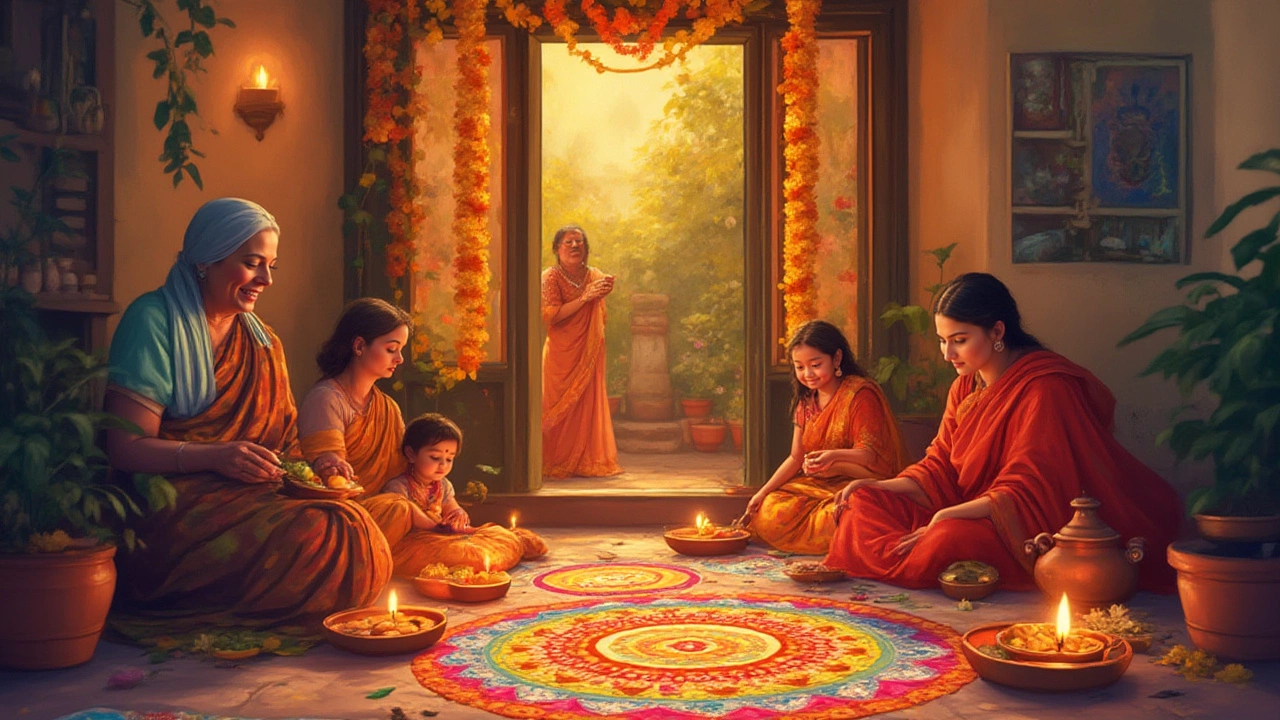
Beyond Raksha Bandhan: Other Festivals Around the Corner
August kicks off a crazy stretch for Indian revelers. As soon as Raksha Bandhan winds down, everyone starts prepping for Janmashtami, the birthday bash of Lord Krishna, which falls on August 26, 2024. If you’re a fan of midnight festivities, singing, and endless sweets (panjiri, anyone?), this is one you can’t skip. Across North India and Maharashtra, watch for temples decorated to the nines, massive crowds for the midnight aarti, and in Mumbai, the high-energy Dahi Handi—guys and girls form human pyramids to crack open pots hung way above street level. It’s a proper sporting event mixed with spiritual fervor, not to mention slippery chaos as everyone tries not to fall over in a quest for cash prizes and bragging rights.
But wait, there’s more. Come late August and September, Ganesh Chaturthi storms in—think of it as Mumbai’s wildest, loudest party that the rest of India is starting to adopt with gusto. In 2024, Ganesh Chaturthi falls on September 7. Over the next 10 days, streets are filled with giant clay idols of Ganesh, the elephant-headed god, all painted in wild colors and surrounded by music, dancing, and miles of garlands. By the final day, you’ll witness processions to beaches and rivers, as idols are immersed in water, giving the city a sort of carnival-meets-religious-fervor energy. Eco-friendly idols are now increasingly used, thanks to concerns about water pollution.
And let’s not forget some regional gems. Onam kicks off in Kerala at the same time. It’s 10 days of flower carpets, boat races, and the grand feast known as Onam Sadhya—if you’ve never had 20+ vegetarian dishes served on a banana leaf, get ready to loosen your belt. For the North-Eastern states, there’s the spectacular Wangala and Hornbill festivals coming up later in the year, which highlight indigenous cultures with music, dance, and a strong sense of community. India’s diversity isn’t just a travel brochure catchphrase—it’s baked into the festival calendar. Each region puts its own spin on the season, and there’s no such thing as ‘one size fits all’ when it comes to Indian celebrations.
Quick tip if you’re traveling or want to join in: this is high season for domestic tourism within India. Book travel and hotels early, and expect trains and buses to get crowded. If you want to experience an authentic festival, connect with locals—or better yet, visit someone’s home. Most families are more than happy to explain their traditions and stuff you with sweets. Just be ready for the inevitable food coma and maybe a crash course in Hindi or the local language as you try to guess which sweet is which. Oh, and bring your own stretchy pants.
Tips for Experiencing and Celebrating Indian Festivals (Even From Afar)
Want to join in on the action, whether you’re in Delhi, Dubai, or even hopping between flights in LA? You don’t have to have Indian heritage to celebrate. Here’s how you can join the fun—even from thousands of kilometers away. If you’ve got Indian colleagues or friends, just ask them how they celebrate. Very likely, they’ll pull you into the action with a rakhi or send you a sweet package. In Wellington, some of my Indian mates do a full-blown Raksha Bandhan with a barbecue twist—kiwi sausages with ladoo for dessert works surprisingly well!
Online stores make it easy these days. Rakhis, festive sweets, clothes, and diyas (lamps) ship globally from cities like Mumbai and Chennai. You’ll find plenty on Amazon, Flipkart, and specialty shops—just order a couple of weeks ahead if you want them in time. If you’re on a budget, get crafty and make your own rakhi or traditional treats—YouTube has hundreds of videos, from beginner craft ideas to pro tips for making real Indian sweets. The heartfelt effort matters way more than perfection.
Now, immersion matters. Livestreams of temple ceremonies, processions, and cultural shows are easy to find (YouTube and Facebook are goldmines). Look out for city celebrations—local Indian associations or cultural societies in Wellington (or wherever you are) often throw community events where anyone can join. There’s usually plenty of food, music, and friendly faces, making it easy to get swept up in the festivities.
Got Indian roots but haven’t celebrated in a while? Try calling up that distant cousin, send a voice note to your brother or sister, or just ship a quirky e-gift. Festivals in India aren’t about expensive gifts—they’re about showing you care, having a laugh, and, of course, eating until you can’t move. For those worried about tradition, don’t sweat it. Indians love putting a personal twist on rituals, so there’s no wrong way to celebrate. If you’re lucky enough to visit during festival season, bring an extra suitcase—for sweets, souvenirs, and maybe even a rakhi or two for someone back home.
What’s next after Raksha Bandhan? Just keep checking those dates—every few weeks, India throws another bash that’s open to all comers. Whether you’re in the thick of the noise in Mumbai or chilling half a world away, the spirit of Indian festivals is pretty hard to miss—and even harder to forget once you’ve tasted it.
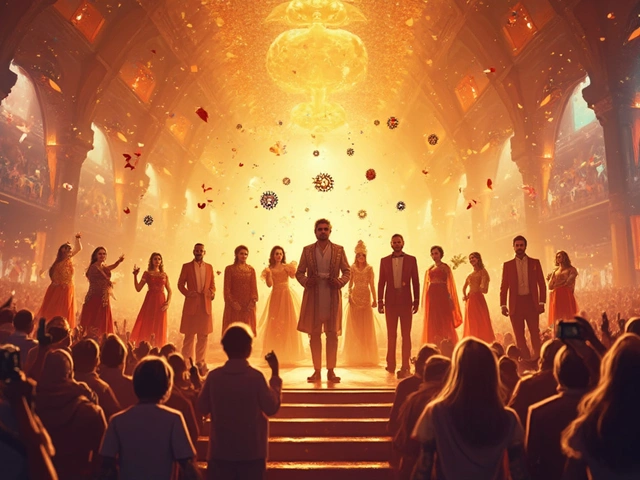
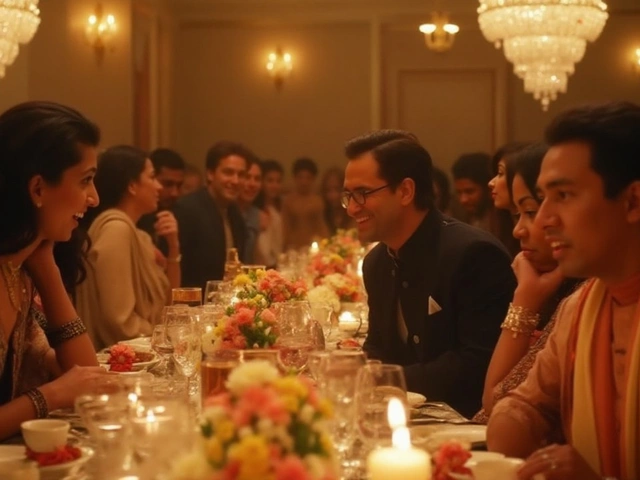

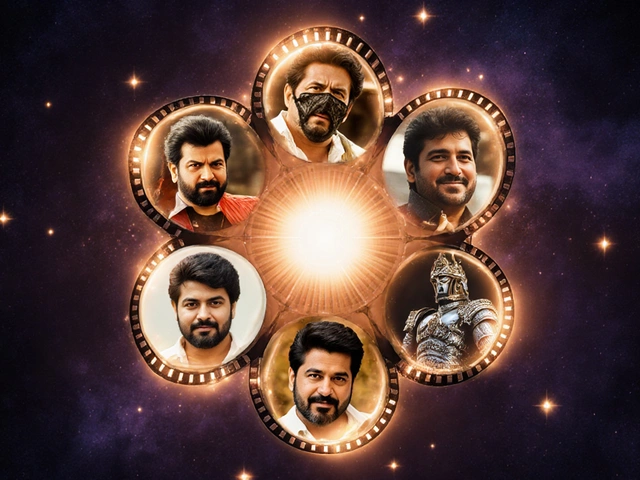

Write a comment